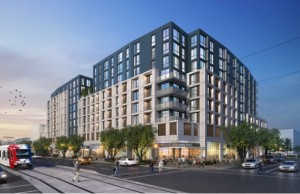Salt Lake City, Utah – The Utah Navajo Revitalization Fund board Monday approved $997,220 in grants and loans for housing and other improvements benefitting the Navajo Nation.
Most of the money will help fund construction of new, modular homes for 39 families living on the Utah portion of the Navajo reservation in San Juan County.
Also funded on Monday: powerline upgrades, a water survey, new road grader and other equipment.
Ken Maryboy, Navajo Revitalization Fund Board member and San Juan County Commissioner, said, 39 homes won’t meet demand for housing on the reservation.
“But anything is greatly appreciated,” said Maryboy. “Some of these people have been waiting years and years.”
Maryboy said it’s not uncommon for two to three families to live together under one roof, and much of the housing is substandard.
“Many of these homes were built in the ‘40s from rock obtained from area uranium mines, exposing families to dangerous radiation,” said Maryboy. “Still, other homes contain unsafe levels of lead and asbestos.”
The Navajo Revitalization Fund Board awards grants and low-interest loans to municipal and tribal agencies in San Juan County impacted by the mining and extraction of oil and gas on Utah land. The money is used to make communities more liveable, including, building homes and senior centers, and paying for water upgrades and youth programs. Seven Navajo chapters on the Utah strip of the reservation are eligible.
The program is managed by the Division of Housing and Community Development under the Utah Department of Community and Culture.



